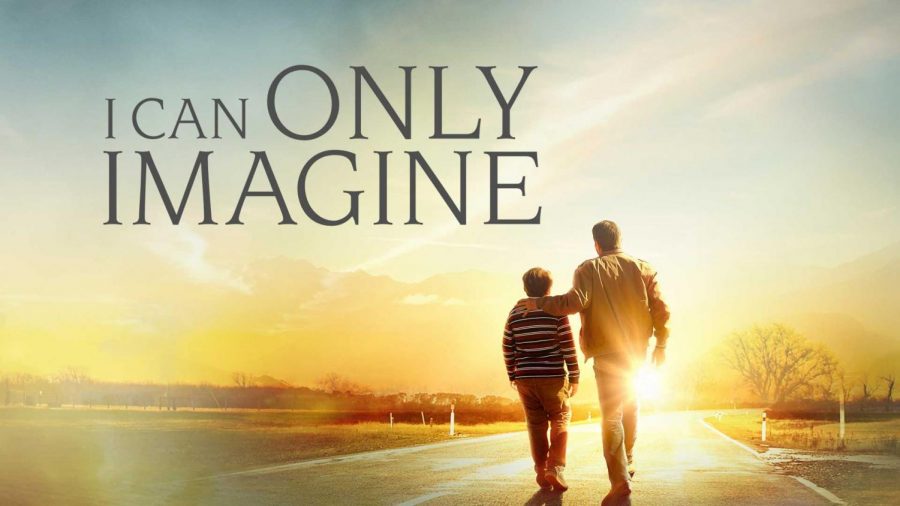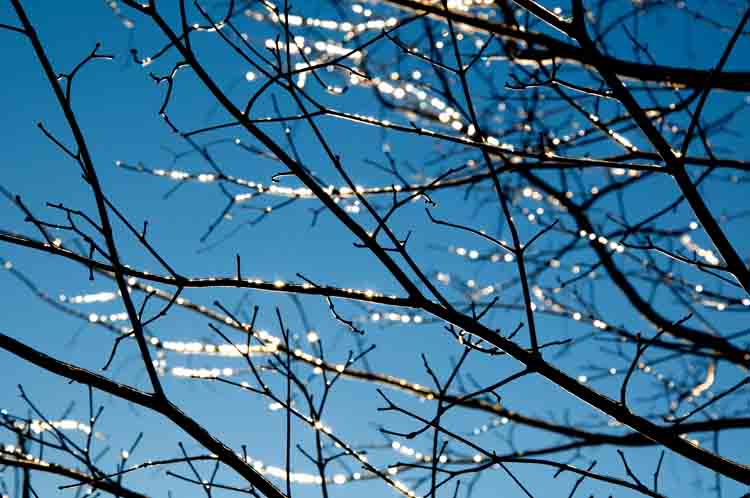Outside my window is a pallid sky, an unremitting drizzle, and the kind of mugginess you get when autumn reports for duty but summer stubbornly contests the election. It’s a sunless day. Gloomy, lugubrious, melancholy. Pick your adjective.
On boring, featureless days like these, hope feels hard to come by. The pandemic continues to siphon our nation’s positivity. The relentless cacophony of politics drowns out our optimism for the future. We keep talking past each other on issues of race, climate change, the economy. And so, while hope has become a precious commodity we need more than ever – more valuable than toilet paper in March – unfortunately there seems less and less to go around.
Maybe that’s why today I found myself daydreaming of heaven.
My imagination wandered into that mysterious realm, that inscrutable kingdom that lies both in our future and outside of time itself. I did not picture the eye-rolling stereotypes of clouds, golden gates, and Roman columns, since none of those come anywhere close to sound interpretations of Scripture and the handful of enigmatic images it provides. No, I pictured that prophecied coupling of heaven and earth from Revelation 21-22, in which every inch of our world is saturated with the goodness, beauty, and truth of God’s presence. Skeptics and atheists may say this is a desperate and pitiful reverie, an utterly incongruent idea when placed next to what we know of human history. Still, the thought of this heaven is the boost my heart needs when the streams of hope run dry.
Of course, whenever I envision the light of the New Jerusalem gleaming like some divine Minas Tirith, I end up with more questions than I do certainties. Not what will such a land look like, necessarily, but what will life in that great new age be like?

That’s the point of the exercise, right? Not simply to picture a beautiful place, but also to cast our hearts and minds to an existence rescued from all the societal unrest, ugly partisanship, and tragic wilting of truth.
And so I wonder…
Will There Be Politics in the Kingdom of God?
You laugh, I know. After all, right now the very thought of politics brings a grimace to the face of Trump and Biden supporters alike. But if I read what is inarguably the most beautiful scene in the Book of Revelation to its conclusion, I find this curious detail:
The city does not need the sun or the moon to shine on it, for the glory of God gives it light, and the Lamb is its lamp. The nations will walk by its light, and the kings of the earth will bring its splendor into it.
Revelation 21:23-34
Did you catch it? Alongside that divine capitol city, there are nations… and kings… and state visits, apparently. Which means even in the glorious kingdom of God in some form or another there are gates and borders and territories. There are regions and locales, dominions and jurisdictions.
It seems John’s vision, or at least his perception of that vision, unfolded according to something like a system of suzerainty, in which tributary states prosper as protectorates under a greater sovereign state. Whether or not this form of international relations is simply a way for our finite minds to comprehend the incomprehensible, or is actually God’s chosen structure for his consummate Kingdom, one fascinating aspect it assumes is that eternal life progresses within a perfected governmental structure, of which the Lamb is the head. There will be monarchical oversight, perhaps a Camelot-like administration, yet completely devoid of scandal, hypocrisy, and duplicitous agendas.

I know, I know… I’m already lost in the semantics of this otherworldly reality. Still, with every bombastic tweet, every puerile power grab, every legislative bottleneck, and every vindictive political meme a friend callously posts on Facebook, the promise that God will not merely eradicate politics but rather teach us what governing truly looks like is the kind of hope I want to cling to on gray days like this one.
Will There Be Art in the Kingdom of God?
I remember how my friends and I used to regularly pester our poor youth minister. Only in his early twenties himself, Stephen somehow dealt with our impertinences with the patience of Dumbledore. That didn’t mean he didn’t get fed up sometimes, though. One night in particular, we were peppering him with ill-conceived questions about heaven. After patiently fielding as many ridiculous inquiries as he could, in exasperation he finally held up his hands and said, “Look, guys, here’s what I think heaven is going to be like. I think we’re going to sing praises to God all day, and we’re going to like it.”
We winced and looked at each other. Praise God… all day? Like, all day? Just some endless worship service? Ugh! Would we have to wear church clothes?

Thinking back to that moment, I smile. Stephen was doing his best to sketch us a picture while remaining true to Scripture, and yet we had worn him down so much he had little imagination left. Don’t worry, he assured us. In heaven, church’ll be fun.
Scripture does not paint a full picture of heaven, least of all what our main activities will be, but it does allude to moments of congregational praise of God for his glorious power and love. And rightly so. Worship would certainly underscore life in God’s kingdom. But we also know there are all sorts of ways to worship God – to express our awe, our adoration, and our thanksgiving. Music is one way, but so is writing, painting, sculpting.
Art is the expression of ideas and concepts too important for only one mind to possess. It’s a creative act bestowed by a benevolent Creator. For me, preaching a sermon is a form of art, while for another it may be photography, playing a great round of golf, composing a musical, or fine-tuning a stand-up routine.
If art is how we experience all that is good and beautiful and peace-giving in life, then art also extends beyond those activities commonly considered part of the medium. Thus, art is found in a fisherman expertly casting his fly, a carpenter deftly sanding down a length of wood, or a gardener gently guiding her plants into full bloom. It is expressed in that magic space where one’s power, patience, and passion meet.
While not Scripture itself, Gerard Manley Hopkins’s oft-quoted “As Kingfishers Catch Fire” reinforces the idea that our attention to beauty – and our recognition that there is beauty even in our most instinctual and mundane actions – is a core part of worship. The poem concludes,
Acts in God’s eye what in God’s eye he is —
– Gerard Manley Hopkins, 1877
Chríst — for Christ plays in ten thousand places,
Lovely in limbs, and lovely in eyes not his
To the Father through the features of men’s faces.
Is it too much of an extrabiblical stretch to believe our Creator will allow us to retain the capacity and love for creating, even within the perfection of our imperishable bodies? That in addition to singing the Lord’s praises, we might also write in reverence of them, paint in reverence of them, make music and movies and even amazing meals in reverence of them?
This may be just me wanting to take some of this world with me when I die. Or, perhaps it’s me wanting these beautiful things we get to experience in this life – things like Marilynne Robinson’s Gilead, Lin-Manuel Miranda’s Hamilton, or Tom Colicchio’s braised short ribs – to be more than just beautiful things, but rather genuine traces of heaven itself.
Will There Be Seasons in the Kingdom of God?
The expectancy of the seasons is a fundamental aspect of life on earth. Cynical philosophers may declare that time is merely a human construct, but scientific research actually reveals we don’t count hours, days, and months for arbitrary reasons. It’s actually a response to immutable natural forces. The concept of a twenty-four-hour day, for instance, is how we acknowledge the intuitive rhythm of our internal circadian clock.
_resources1_16a0854053b_large.jpg)
So, let’s talk seasons. While today’s mugginess isn’t pleasant, we’re nonetheless entering the time of year I treasure most. The welcoming cool of autumn, and its crisp scents and colors, is coming on. The season of harvest. Every year, it lifts my spirit. I marvel at God’s imagination, his astonishing attention to detail.
I know the same could be said for summer, but I’ve never been near as fond of it. It’s hot, humid. You have to schedule your morning run before 7 AM or you risk heatstroke. Even evening strolls make you want to shower afterward. Granted, I grew up in Texas and I live in Georgia, so you get what you pay for. But this is all the more reason why I adore fall, and why I hope the same unique and sublime sensations it brings will be present in the heavenly kingdom.
Here’s the thing, though. Again, the cynic will say, “Well, technically, autumn signals death and dormancy. It marks the withering of life (even if only temporary).” The leaves may change into beautiful colors, sure, but they end up a lifeless, brown pile on the yellowing lawn. Crops are harvested and fields are mowed. Sunlight retreats. It’s darker in the mornings, and it’s darker in the evenings. This is a season of senescence, old age preparing for expiration. As lovely as an autumn breeze may feel, what place would such morbidity have in the renewed and eternal kingdom of God?
A valid point, I suppose. The description of the kingdom in Revelation 21-22 does repeatedly claim there will be no need for the sun or the moon, for all illumination will come from God himself. So, if there is no day or night, how can there be a harvest season? How does one even sow seeds or reap their fruit?
On the other hand, the final image of John’s prophecy is of a restored Eden, in which there are indeed crops which yield fruit each month (Rev. 22:2). So, either there are no seasons and these crops are as magical as everything else, or in heaven the harvest season is a permanent state rather than a passing one.
/cdn.vox-cdn.com/uploads/chorus_asset/file/9160067/Pumpkin_Spice_Latte___2015__4_.jpg)
I don’t know. But here’s what I do know, or at least, here’s what I believe.
The gospel is the story of hope emerging, struggling, dying, and living again. It is the way of Jesus, who reigns as King of heaven, and every year hence the earth has, in its skies, its climates, and its seasons, retold his story. Through both splendid songs and harrowing groans, through both mountain vistas and dissolving glaciers, this world tells the story of its once and future King. It has offered its very being unto its Creator.
When you think of it like that, even the mugginess of this gray day is put into a greater perspective. In these times when all hope seems lost, the earth itself reminds us that these moments, however long they feel, are fleeting. They are but a single page in a grand book about the triumph of hope. And I can’t fathom why the telling of this glorious gospel would ever cease once heaven and earth meet. No, in the peaceable kingdom, I believe it will be on display with even greater eloquence than it is now.
I know, I know. It feels like an outlandish fantasy, even for the devout. No doubt I’m playing and bit too fast and loose with Scripture here. But, you know, given the spiraling fear and acrimony being sown today in our politics, our national discourse, even our homes and our churches, I’ll take a few peaceful moments in this heavenly daydream however I can get them.
Because they remind me that hope remains. It endures.























